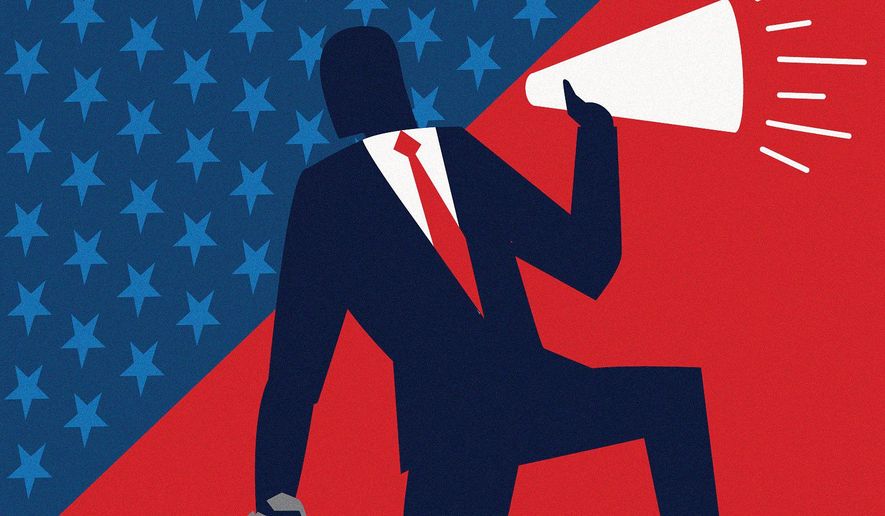 Here are things that have happened, so far, in 2020. The Earth recorded its hottest January ever. Australia burned. A pandemic killed more than half a million people and left their funerals unattended. Tens of millions of people, perhaps the largest social movement in U.S. history, took to the streets — and transformed, in the process, America’s perception of itself. Then, there were the murder hornets.
Here are things that have happened, so far, in 2020. The Earth recorded its hottest January ever. Australia burned. A pandemic killed more than half a million people and left their funerals unattended. Tens of millions of people, perhaps the largest social movement in U.S. history, took to the streets — and transformed, in the process, America’s perception of itself. Then, there were the murder hornets.
Here are other things that have happened, so far, in 2020. The second-largest financial contributor to the World Health Organization (WHO) lied for months about an emergent virus, allowing it to morph into a devasting global pandemic. Then, that same country reportedly stockpiled medical supplies and personal protective equipment (PPE) while concealing the virus, leaving the rest of the world vulnerable.
Next, the authoritarian state subverted a democratic government in Hong Kong, violating an international treaty with the United Kingdom. After that, its ambassador to the U.K. tried, and failed, to explain away devastating footage of Beijing implementing a slow-motion genocide against a religious minority; of blindfolded, shackled Uighurs being loaded into trains.
Every one of these violations of global norms should resonate as a watershed moment. Every one of these should be enough to inspire a U.S.-led international defense against China’s authoritarian offensive. But none has met with more than rhetoric.
The big story right now is about U.S. domestic response to COVID-19 and its implications for American leadership. What about America’s inadequate response to China’s abuses — and what that augurs for the U.S.-led world order?
The world needs America to lead.
The United States cannot do so alone. From both a pragmatic and a normative perspective, Washington will have to work with its allies and partners as well as with the private sector if it is to respond effectively to China. The United States will also have to update its approach for a modern competitive environment. This is not the Cold War. America will not be able to protect the global system through military investments or so-called decoupling.
Beijing competes in a new way, holistically across commercial and military domains. And the Chinese Communist Party (CCP) weaponizes its integration into global systems. China games multilateral bodies so that it can set international standards — think 5G, financial technology, global logistics and the rules of trade settlement.
China guides its companies, supported by state subsidies, to integrate into the international commercial ecosystem in order to steal foreign technology, foster foreign dependence and hollow out foreign industry. China has spent the past two decades shoring up control over global supply of critical raw materials in order to acquire coercive leverage.
China has also spent the past two decades establishing dominance in critical supply-chain nodes for the same end. The CCP uses the resultant subtle, subversive leverage to stymy the necessary and appropriate response that Beijing’s egregious affront to global norms should prompt.
America, its allies and its partners will have to account for Beijing’s new competitive approach. Responding to China’s distortive rule-breaking, they should invest to set and reset standards of global commercial, financial and technological interaction. This calls for a next generation, high-tech Bretton Woods.
They will also have to invest in the building blocks of a modern economy: raw materials, industrial capacity and infrastructure. This should look like a new New Deal, but on the footprint of the Marshall Plan.
And they will have to leverage their strengths to target China’s sensitivities. Beijing is strategic, deliberate and well positioned. But Beijing is no thousand-foot giant. The United States, its allies and partners, and their private sectors still have real advantages. If a U.S.-led coalition can activate Beijing’s fear of America’s military capacity, it can divert the CCP’s resources. If a U.S.-led coalition can protect its innovation from Beijing’s theft, it can reassert technological superiority.
In the immediate, the United States should consider responding to China’s civil rights abuses in Hong Kong through horizontal escalation and pre-emptive positioning. What happens if Washington recognizes Taiwan tomorrow? Such a diplomatic maneuver would pave the way for the coordination and enhanced security cooperation necessary for credible extended deterrence.
Such an ambitious U.S. and global response to China might sound outlandish. But it is necessary. Hong Kong was two months ago. Taiwan is next. Australia comes after. China’s authoritarian aims are global.
We are at a turning point. Secretary of State Mike Pompeo defined as much on July 23rd in a speech at the Nixon Presidential Library: “The old paradigm of blind engagement with China simply won’t get it done. We must not continue it and we must not return to it … The free world must triumph over this new tyranny.”
While COVID-19 has created a crisis, it has also created an opportunity — as Beijing has been all too quick to realize. In everything from recovery investment to virtual offices to civic mobilization, the United States is redefining itself. That redefinition can create new institutions and processes, updated for a modern world and threat. That redefinition can be competitive. And it can reclaim American values to strengthen American standing in the world.
• Nathan Picarsic and Emily de La Bruyere are senior fellows at the Foundation for Defense of Democracies with a focus on China policy.
No comments:
Post a Comment